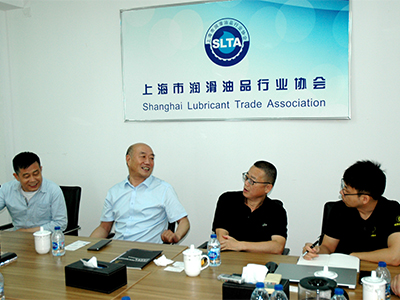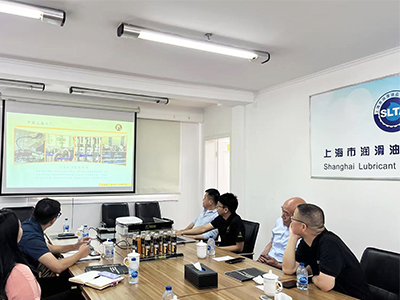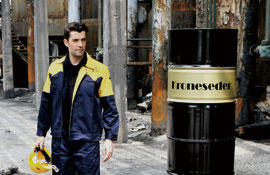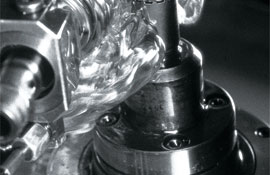Release Time:2025-7-14 Author:Kroneseder
On July 7, 2025, the Shanghai Lubricant Trade Association, in collaboration with Shanghai Kroneseder Jama Petroleum Group Co., Ltd. and the Shanghai Aluminum Industry Association, jointly hosted the "Technical Requirements and Methods for Aluminum Processing Lubrication" seminar.

At the seminar, Ye Changlin, technical engineer at Kroneseder Lubricants, shared multiple lubricant products specifically designed for aluminum alloy processing. These included the Kroneseder Minimum Quantity Lubrication (MQL) series, aluminum cutting fluids, magnesium-aluminum cutting fluids, aluminum cleaning fluids, and aluminum battery stretch forming oils.
Among these, the Kroneseder MQL series utilizes advanced synthetic technology based on fully biodegradable raw materials. This product features minimal consumption, superior lubricity, effective tool protection, anti-adhesion against chip buildup, and improved workpiece surface finish. It also reduces equipment setup requirements and lubricant usage, making it suitable for drilling, milling, turning, and other machining processes.

The Kroneseder aviation aluminum cutting fluid is a high-performance micro-emulsion suitable for processing all types of aluminum. It offers excellent corrosion inhibition, lubrication, cooling, cleaning, and anti-decomposition properties, delivering consistent performance across diverse operating environments.
Additionally, the aluminum battery stretch forming oil series is engineered for stamping, shearing, and deep-drawing operations under varying loads. It effectively extends mold life, reduces defective products, minimizes smoke generation, and provides unique lubrication and cooling effects. This series is widely applied in cold extrusion and cold forging of aluminum plates, stamping/stretching/bending of automotive aluminum components, and deep-drawing processes for mobile phone battery aluminum casings and new energy battery aluminum shells.
During the seminar, the three parties engaged in in-depth discussions on numerous technical details, fostering mutual understanding across their respective industries. They thoroughly explored industry challenges such as improving processing efficiency and rationally reducing lubricant usage costs, expressing strong anticipation for deeper future collaboration.







